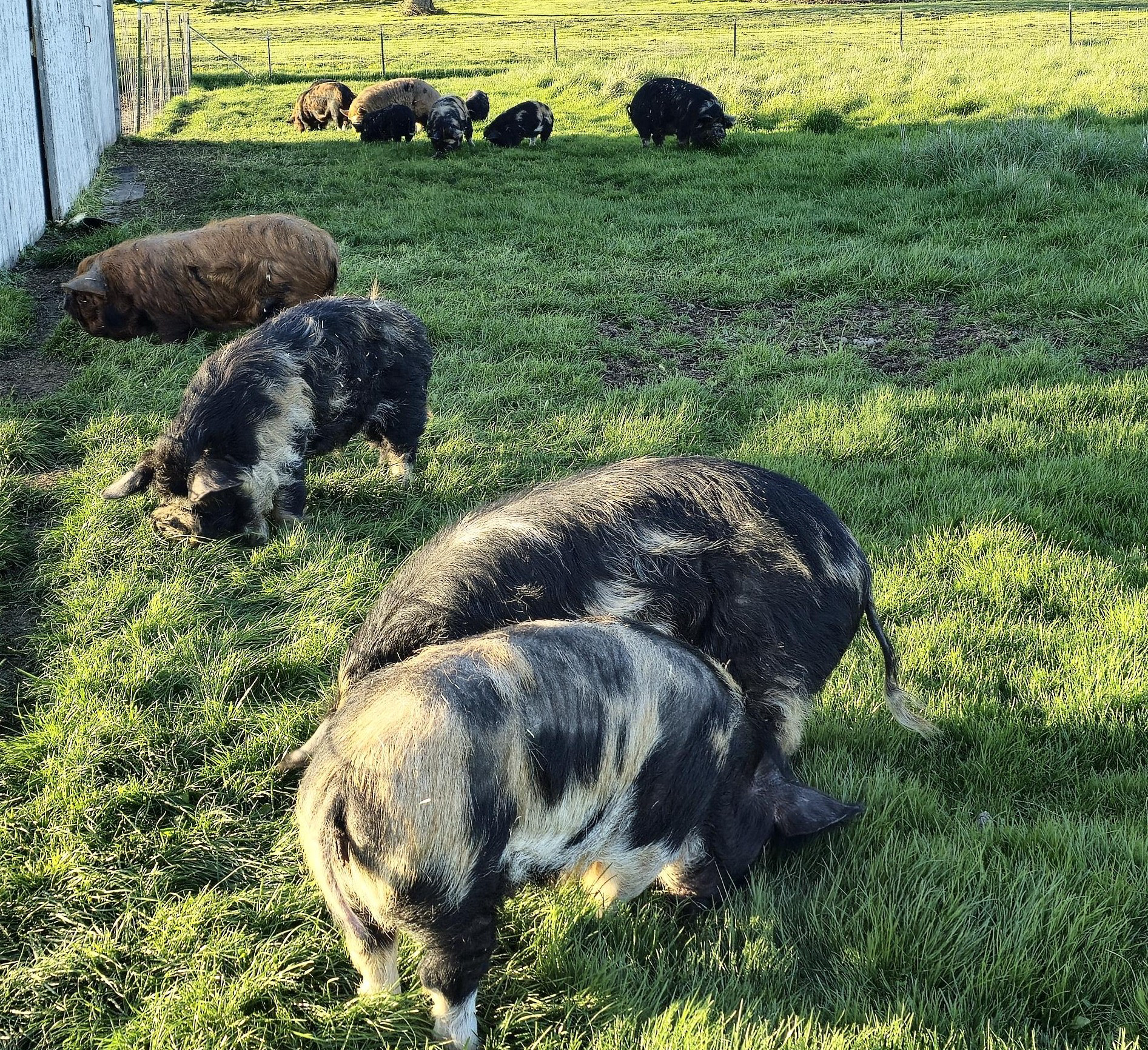Available Gilts
AKKPS 38986P
DOB: 7/17/23
Brown/White Female
COI: 7.4494%
Sire: AKKPS 24123 SNS BH Tutaki 4
Dam: AKKPS 11706 Red Roof KuneKunes Jenny 27
AKKPS 39987P
DOB: 7/17/23
Black/White Female
COI: 7.4494%
Sire: AKKPS 24123 SNS BH Tutaki 4
Dam: AKKPS 11706 Red Roof KuneKunes Jenny 27
AKKPS 38988P
DOB: 7/17/23
Ginger/Black Female
COI: 7.4494%
Sire: AKKPS 24123 SNS BH Tutaki 4
Dam: AKKPS 11706 Red Roof KuneKunes Jenny 27
AKKPS 47051P
DOB: 11/6/23
Ginger SB Female
COI: 6.5857%
Sire: AKKPS 24123 SNS BH Tutaki 4
Dam: AKKPS 24090 Pionessa Heritage Manor Rona 3
AKKPS 47052 P
DOB: 11/6/23
Black/Ginger Female
COI: 6.5857%
Sire: AKKPS 24123 SNS BH Tutaki 4
Dam: AKKPS 24090 Pionessa Heritage Manor Rona 3
Available Boars
AKKPS 47048P
DOB: 11/6/23
Cream Male
COI: 6.5857%
Sire: AKKPS 24123 SNS BH Tutaki 4
Dam: AKKPS 24090 Pionessa Heritage Manor Rona 3

Several barrows available for pets or meat
After 56 days in the incubator, Emu hatchlings appear! They are kept in a confined area and are provided supplemental heat. They are ready for new homes after about 2 weeks of age to ensure they are well acclimated. Emu chicks have fragile legs. Unlike other baby animals, they should not be encouraged to run and jump around. They are best kept in pairs for socialization. Chicks can be sexed via feather testing at commercial labs.
Seasonably Available
Fresh emu eggs are typically available from April-June. Eggs can be batched and incubated together within two weeks of laying. Each emu egg is equivalent to a dozen chicken eggs- a sizable and unique breakfast item. The emu egg shells are a beautiful teal color with an underlayer of white. The shells can be used for a variety of art projects.
